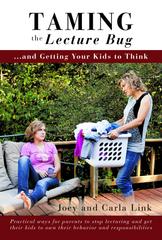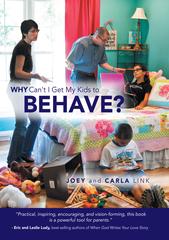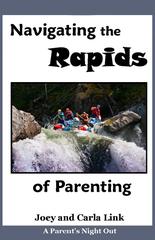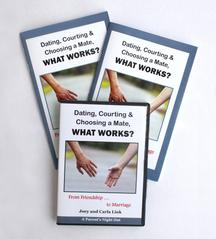Ever have one of those days when you could use extra encouragement and practical ideas for helping your beloved children shine as respectful, responsible ones? I know I certainly do, and that is why I was happy to review What Every Child Should Know Along the Way and Taming the Lecture Bug and Getting Your Kids to Think from Parenting Made Practical.

What Every Child Should Know Along the Way by Gail Martin packs a ton of practical ideas for parents of preschoolers through college-age children into a slim 151 pages. I began reading the book when my children, then me, were hit with the flu and, immediately found myself recognizing so many of the truths in it and becoming further convicted of the importance of teaching my children practical life skills and encouraging habits of virtuous living.
"The Twelve Rules for Rising Delinquent Children" shared in the introduction seemed quite apropos to me - and my husband when I shared it with him - regarding our thoughts on what we do NOT want to do with our children and what we see far too many parents doing these days. In fact, the list struck us so much, that my husband brought the book to share the list at a dad's group meeting he was going to while I stayed home to nurse our children. Meanwhile, I reflected on some of the many ideas and verses shared in the book's chapters on:
- practicing family devotions
- cultivating family unity
- acknowledging and using gifts and talents as tools given by God for serving Him
- developing character
Later, when I got the book back, I read through the chapter on manners, recognizing some manners my children have already mastered he practice of, but far ore we need to work on. Then, I dove into the meat of the book - the part I was most looking forward to having on hand - the chapters on practical life skills and personal safety.
These chapters provided detailed lists of skills and knowledge children from ages 2 on up might master. As I read the lists, I mused at how my children had not mastered some of the skills suggested for kids younger than they are, and, yet had mastered other skills suggested for much older children. I also began noting what skills I wanted to work with my children on next.
The need for "up next" skills only became amplified the following week when my children recovered from the flu and I went down with it. As I laid on our couch plagued by aches, high fevers, and lightheadedness while my children prepared food, did dishes, brought me drinks, or simply sat with me, letting me know they understood how horribly I felt and wanted to help, I became extraordinarily grateful for past efforts in training my children up. Their kindness and help truly strengthened me despite my physical illness.
However, all did not continue with gratitude and great kids. As my bout with the flu wore on from days to a week - my children's attitudes and ability to happily help plummeted. We are all very unused to me being down so long, and, I realized just how much training my children (and I!) still need as we grow in godly living. Thus, once I recovered, I placed What Every Child Should Know Along the Way on my bedside to be at the ready whenever I needed a map - or even just a verse from Scripture - to guide our next growth steps. I also found myself sharing ideas from the book with several mom friends who asked about what chores would be good for their children to begin mastering at what ages and explained just how helpful I have been finding this easy-to-use guide as to what children need to know and are capable of learning at what ages and stage.
Honestly, What Every Child Should Know Along the Way is one of the most practical, packed yet easy to use, resources I have seen for parents seeking:
- Scriptural references for teaching children about character
- how-to's about etiquette.
- detailed lists and charts of practical life skills for children from toddlers to college age.
- concrete ideas for teaching children about personal safety - from "stranger danger" to electricity to swimming, hiking, biking, motor vehicles, animals, and more.
Of course, because all families and individuals within them are different, not every single point in the book will ring true for everyone, but all point, believe, will help you decide what you want - and need - to teach your child at what ages so your child can succeed in this life and, God-willing, enter into eternal life. Homeschool mom and author Gail Martin truly has compiled a handy, on-point resource for practical life skills and personal safety, weaving faith-based ideas right in alongside more mundane needs.
In fact, there is very little in the slim and practical What Every Child Should Know Along the Way that I did not appreciate save a few minor typos. However, I make errors and typos all the time, so I can definitely forgive the ones I found in this book, especially since the book offers such a plethora of sound lists, practical tips, helpful ideas, and pointed Scriptural references. I have already recommended the book to a number of local friends and, now, recommend it to you, too, should you be looking for a concise yet complete Christian resource to guide you in teaching your children practical life skills in every stage of life.
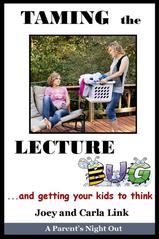
Taming the Lecture Bug and Getting Your Kids to Think, a 53-minute video for parents of children ages 5 and up, came as a bonus surprise in my package from Parenting Made Practical, and I am glad it did. For, with two tweens in our house, boundaries are often pushed, and with them, proverbial "buttons" are, too. As buttons get pushed, I admit, my husband and I sometimes depart from being the steadfastly calm, loving, and relational parents we desire to be and slip into "mean Mom and Dad" mode, reacting to our children's choices and behaviors with ineffectual lectures and lousy parenting habits. Thus, Taming the Lecture Bug and Getting Your Kids to Think became a welcome "parenting retreat" for me, guiding me to get back on course with more effective parenting practices.
The first time I began to watch Taming the Lecture Bug and Getting Your Kids to Think, I sequestered myself in my room with my laptop after a hard day in the parenting trenches and immediately recognized that the video was created by real parents with real tried-and-true ideas to share. For, although the quality of the video was fine for my laptop screen viewing, it was not filled with big company bells and whistles. Rather, it was simply a recording of Joey and Carla link - a husband and wife team - offering a live audience sound explanations about why lecturing children does not work and giving their audience (and me!) practical ideas for what to do instead of lecturing.
As Joey and Carla offered wisdom as parent educators who have served families for over 25 years, they tied in Scripture, hints of humor, and relatable anecdotes. They also brought home certain points using slides that are paralleled by the FREE study notes documents they offer on their website. Plus, Joey and Carla's daughter joined them on stage a couple times, so Joey and his daughter could offer demonstrations of ineffectual lecturing and purposeful questioning. Though a bit "canned", these demonstrations were useful in helping me to hear and visualize what works and what does not work.
Now, of course, no 53-minute video can offer all the tools parents might need to permanently change their own behavior nor that of their children. However, Taming the Lecture Bug and Getting Your Kids to Think certainly offers key takeaways that can be applied with ease and effectiveness. Among them are:
- Teach expectations explicitly.
- Get to know your child's temperament
- Do not get into power struggles with your child.
- Keep asking questions that will make your child think at a deeper level, dealing with the issues as opposed to simply symptoms.
Of course, all these takeaways are packaged with further details and practical tips, including 10 questions a parent might pose to a child instead of lecturing and a list of phrases parents should not accept as answers.
Now, I admit, the first time I watched Taming the Lecture Bug and Getting Your Kids to Think I did not glean everything I could from it. In fact, I dozed off a few times. However, I can also attest that my drowsiness had nothing to do with Joey and Carla's presentation. Rather, it had everything to do with far too many late nights and early mornings for me coupled with a challenging parenting day. Thus, when I was more alert, I watched the video a second time - and that was when the simple genius of Joey and Carla's tips for questioning in lieu of lecturing really crystallized in my brain and went into my parenting toolkit. Indeed, the very next day, my oldest child pushed limits and buttons several times, and, instead of lecturing, I began questioning.
Now, I admit, the first time I watched Taming the Lecture Bug and Getting Your Kids to Think I did not glean everything I could from it. In fact, I dozed off a few times. However, I can also attest that my drowsiness had nothing to do with Joey and Carla's presentation. Rather, it had everything to do with far too many late nights and early mornings for me coupled with a challenging parenting day. Thus, when I was more alert, I watched the video a second time - and that was when the simple genius of Joey and Carla's tips for questioning in lieu of lecturing really crystallized in my brain and went into my parenting toolkit. Indeed, the very next day, my oldest child pushed limits and buttons several times, and, instead of lecturing, I began questioning.
As might be expected, my tween son attempted to derail my questioning and respond with wishy washy and unacceptable answers. At that point, I did not raise my voice, revert to lecturing, or anything. I simply asked him to leave the room and come back when he was ready to answer the question I asked.
My son ended up having to leave three times before he chose to answer my questions honestly, and, then, admitted he knew what he had done was lacking in virtues and that he needed to name what he had done to his brother, ask for his brother's forgiveness, and offer his brother amends. Now, this sibling reconciliation technique did not come from Joey and Carla's video - it is something we have long used in our house - but the ability to get to the point of reconciliation without loud lecturing on my part or huge drama on my son's part was a direct result of my applying techniques and language gleaned from Taming the Lecture Bug and Getting Your Kids to Think.
I just love when I am able to invest a brief period of my time into a parenting help and to come away with distinct ideas and tools that can be applied to my present parenting. Since this has been the case for me with Taming the Lecture Bug and Getting Your Kids to Think, I do not hesitate to recommend it as a helpful resource for parents like me that need practical ideas to move themselves away from lecturing and into practices that allow them to discover their children's areas of need and motivate their children to make right choices in the future.
Learn MoreMy son ended up having to leave three times before he chose to answer my questions honestly, and, then, admitted he knew what he had done was lacking in virtues and that he needed to name what he had done to his brother, ask for his brother's forgiveness, and offer his brother amends. Now, this sibling reconciliation technique did not come from Joey and Carla's video - it is something we have long used in our house - but the ability to get to the point of reconciliation without loud lecturing on my part or huge drama on my son's part was a direct result of my applying techniques and language gleaned from Taming the Lecture Bug and Getting Your Kids to Think.
I just love when I am able to invest a brief period of my time into a parenting help and to come away with distinct ideas and tools that can be applied to my present parenting. Since this has been the case for me with Taming the Lecture Bug and Getting Your Kids to Think, I do not hesitate to recommend it as a helpful resource for parents like me that need practical ideas to move themselves away from lecturing and into practices that allow them to discover their children's areas of need and motivate their children to make right choices in the future.
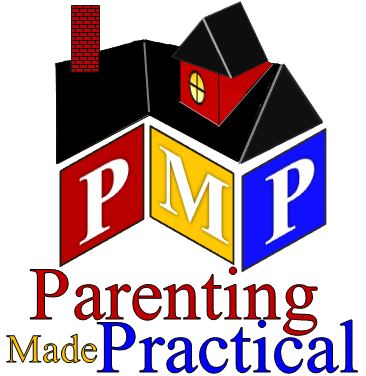
Parenting Made Practical offers a variety of books and videos to “encourage and equip parents to practically raise obedient, respectful, and responsible children in today’s world," such as:
Eighty Homeschool Review Crew families read or viewed some of these. You an find all the reviews by clicking through the banner.


